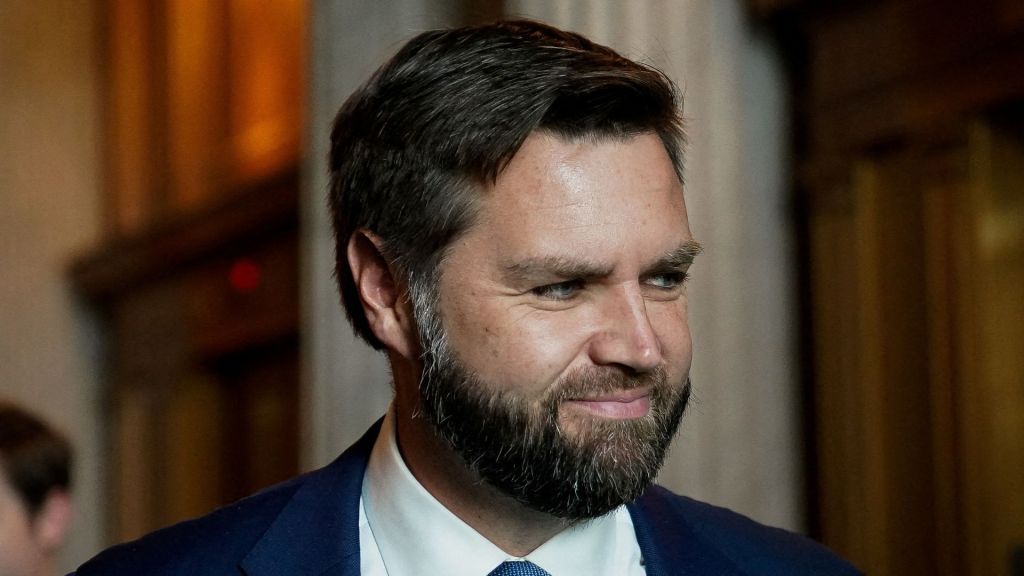
Sen. Elizabeth Warren:
Donald Trump was onto a real problem when he criticized Bank of America for its debanking practices.
Simone Del Rosario:
Another meeting of the minds between Democratic Senator Elizabeth Warren and Republican President Donald Trump? That is the case on the issue of debanking.
Sen. Elizabeth Warren:
No warning.
No explanation.
No chance to dispute or appeal.
all of a sudden, they lost their place in the banking system.
Simone Del Rosario:
But Warren’s solution may be at odds with the president’s actions and promises. That’s because her solution involves an agency conservatives have long tried to shut down.
Last month, during a virtual address to the World Economic Forum in Davos Switzerland, the president took debanking complaints directly to Bank of America CEO Brian Moynihan.
Donald Trump:
“I hope you start opening your bank to conservatives because many conservatives complain that the banks are not allowing them to do business within the bank, and that included a place called Bank of America.
I hope you’re going to open your banks to conservatives because what you’re doing is wrong.”
Simone Del Rosario:
Bank of America later denied the claim to Straight Arrow News, saying, “We never close accounts for political reasons and don’t have a political litmus test.”
But Warren suggests debanking stretches far beyond political ideologies.
Sen. Elizabeth Warren:
Formerly incarcerated Americans have been debanked because of their criminal history.
Some people have been debanked for merely having the same name as someone who has a criminal history.
Muslim Americans and Armenian Americans have faced debanking on account of their last names.
Non-profits and charities operating internationally have been debanked through no fault of their own.
Lawful cannabis businesses have been unable to open accounts, and employees of those businesses have also been debanked.
Simone Del Rosario:
JPMorgan Chase CEO Jamie Dimon tried debunking the debanking theories on Chase’s “The Unshakeables” podcast.
Jamie Dimon:
We have not de banked anyone because of political or religious relationships, period. Now, when we de bank someone, they often blame that reason, but that’s not a reason. We don’t bank marijuana companies because there’s no federal law around it. We simply can’t follow the law. If there’s a federal law, we probably would, and we do bank some crypto companies, and very carefully, we are responsible in the law to fight sex trafficking, money laundering, tax avoidance. It’s the Bank Secrecy Act, Right Bank Secrecy Act, and we have to follow that.
Simone Del Rosario:
Ahead of Wednesday’s Senate Banking Committee hearing on the topic, Warren released data on how many Americans complained about debanking to the Consumer Financial Protection Bureau.
The analysis reads…
“In the last three years, 8,056 consumers filed complaints with the CFPB against a financial institution for improperly closing checking, savings, or other deposit accounts. In the same period, 3,899 consumers filed complaints related to being ‘unable to open’ a deposit account.”
Sen. Elizabeth Warren:
This shouldn’t be happening. So we need to figure out why, and who is responsible. My staff did some more work here as well. They found that just four big banks—Bank of America, JP Morgan, Wells Fargo, and Citibank—accounted for half of all the complaints filed at the CFPB.
Simone Del Rosario:
During the hearing, Anchorage Digital CEO Nathan McCauley said his company was debanked in 2023. The reason the unnamed bank said it was closing the firm’s accounts? It was uncomfortable with Anchorage’s crypto clients.
[NATHAN MCCAULEY:
They refused to provide any further explanation or allow us to speak with the risk management team. Needless to say, I was shocked.
We had extreme difficulty finding new banking partners. We spoke to about 40 banks across the country and were rejected by all of them, many telling us they had a blanket policy against serving crypto clients.”
Simone Del Rosario:
Warren says there’s only one government agency that can correctly address the situation.
Sen. Elizabeth Warren:
the CFPB is the one agency that is actively working to stop unfair debanking. Right now, the agency has five different rules either in place or in progress that would help prevent debanking by addressing some of the root causes, from overdraft fee practices to religious discrimination. And the CFPB is working to hold banks accountable when they close law-abiding citizens’ and businesses’ accounts for no good reason.
Simone Del Rosario:
But over the weekend, Trump fired CFPB Director Rohit Chopra, who was appointed by former President Joe Biden. Treasury Secretary Scott Bessent took over as acting director.
On Monday, Bessent sent an email to staffers leaked to multiple media outlets. The email told CFPB employees to stop all work related to regulations, rulemaking and corporate investigations unless required by law.
Sen. Elizabeth Warren:
The freeze Secretary Bessent has put on the CFPB means more Americans across the country will be unfairly debanked, and they will lose the one agency that is working to help them.
Simone Del Rosario:
CFPB was the brainchild of Sen. Warren before she became a senator. It was born out of the 2008 financial crisis and created by the 2010 Dodd-Frank Act.
The agency combined consumer financial protection authority from seven different agencies.
MARC ANDREESSEN:
It’s sort of Elizabeth Warren’s personal agency that she gets to control, and it’s an independent agency that just gets to run and do whatever it wants.
Simone Del Rosario:
Conservatives have tried toppling CFPB in the courts by challenging the constitutionality of its funding. The agency gets its funding from the Federal Reserve Board, outside of congressional appropriations. But when the issue reached the Supreme Court, the majority sided with CFPB.
After the presidential election, Elon Musk said the U.S. should delete CFPB.
For more on that debate, search “delete CFPB” for this story at SAN.com or the Straight Arrow News app.











